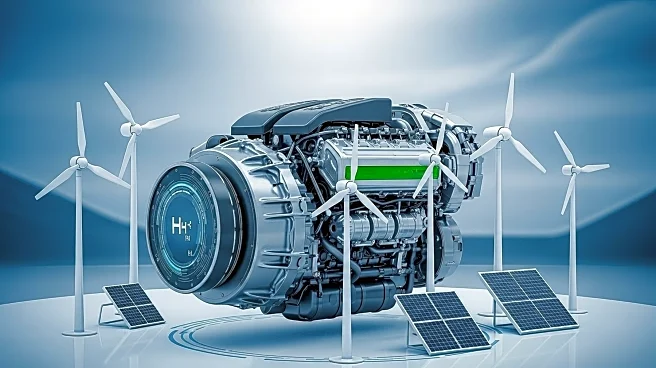What is the story about?
What's Happening?
The International Maritime Organization (IMO) is intensifying efforts to train seafarers in handling ships powered by alternative fuels as part of its strategy to reduce greenhouse gas emissions. The IMO has released interim guidelines for training seafarers on ships using zero or near-zero emission fuels, such as methyl/ethyl alcohol, ammonia, hydrogen, and battery-powered ships. These guidelines aim to establish an international framework for seafarer training, which will be considered for mandatory inclusion in the revised 1978 STCW Convention Code. The initiative is part of the IMO's broader strategy to support the shipping industry's transition to more sustainable energy sources.
Why It's Important?
The IMO's focus on training seafarers for alternative fuels is crucial for the maritime industry's transition to sustainable energy. As the shipping sector seeks to reduce its carbon footprint, the adoption of alternative fuels is essential. Proper training ensures that seafarers can safely operate ships using these new technologies, minimizing risks and enhancing operational efficiency. This initiative supports global efforts to combat climate change and aligns with international decarbonization goals. It also positions the maritime industry to meet future regulatory requirements and maintain competitiveness in a rapidly evolving energy landscape.
What's Next?
The IMO's Sub-Committee on Human Element, Training and Watchkeeping will review the interim guidelines in February 2026, potentially leading to mandatory training requirements. As the industry adopts alternative fuels, ongoing support and collaboration with member states will be essential to ensure successful implementation. The development of comprehensive training programs and resources will be critical to equip seafarers with the necessary skills. The maritime industry may also see increased investment in research and development to further advance alternative fuel technologies and infrastructure.

















